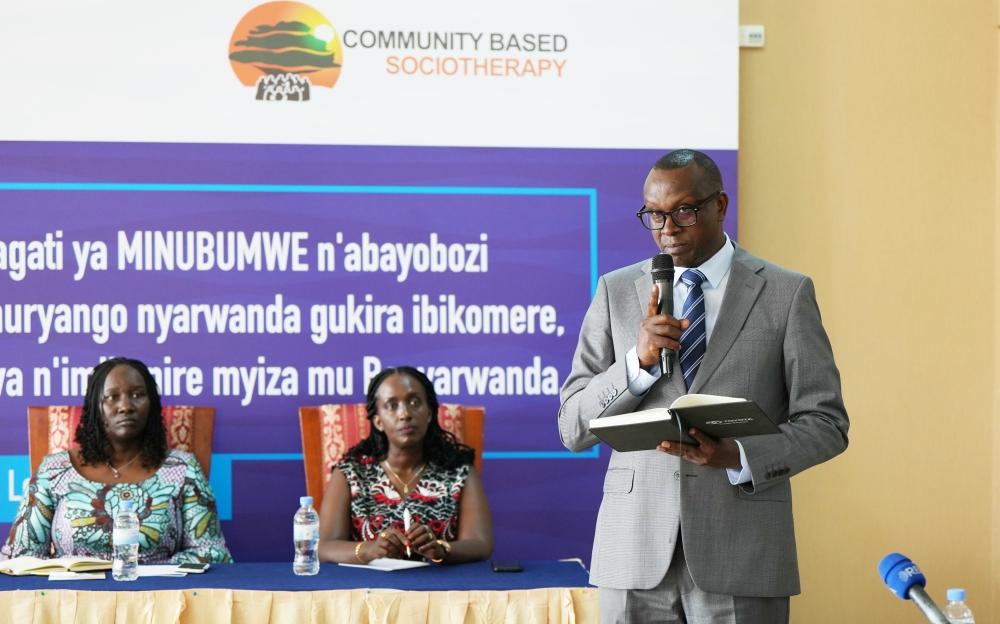Religious leaders have pledged to put more efforts in fostering truth, healing and reconciliation among Rwandans as the country continues to recover from the effects of the Genocide against the Tutsi.Religious leaders commit to tackling effects of Genocide
On Tuesday, January 17, the Ministry of National Unity and Civic Engagement held a meeting with various leaders of various faith-based organisations, aimed at discussing ways of working together towards healing, unity, development, and good relations among Rwandans.
According to the Minister of National Unity and Civic Engagement, Jean Damascene Bizimana, faith-based organisations play a big role in assisting the government by teaching people the importance of the truth, forgiveness, proper upbringing of children among others.
“Faith-based organisations have done contributed tremendously in healing and reconciliation, and later came up with documents in which they pledged to be more involved,” he said.
However, he highlighted that there is still a lot of work to be done, since there are many people who are in need of healing.

Research conducted by unity club Rwanda in 2021 indicated that majority of youth who battled trauma did not know the cause. The research also revealed that 99 per cent of them had lost their parent at a tender age during the Genocide against the Tutsi.
“With the assistance of religious leaders, some people who committed genocide admitted their responsibility, spoke the truth and asked for forgiveness. They even revealed where they hid the bodies of the victims so that they would be given decent burials. We have witnessed this sometimes, but it is not yet at the level where it should,” he said.
He called upon the leaders to teach God’s word with the Rwandan context, showcasing to the believers what God has to do with the healing and rebuilding of a country that was once torn apart by the genocide.
George Nkurunziza, the in-charge for spiritual growth at African Evangelistic Enterprise Rwanda (AEE), a local Christian NGO dedicated to working with children, youths, families and communities to address the root causes of poverty, said there is still “a big problem” in regard to the fact that religions don’t have a consistent platform where they can discuss issues of unity, reconciliation, and development of Rwandans.
“We need such a platform. It can be in the form of seminars or conferences and so on. This can assist us in giving contextual discipleship to the believers. We need to teach the word of God but also tackle the problems we have here,” he noted.
Sheikh Suleiman Mbarushimana, the Advisor to the Mufti of Islam in Rwanda also urged religious leaders to put effort in “complementing” the government’s efforts of building a peaceful Rwandan society.
“For example, we are currently writing a book that will provide knowledge about the responsibility of believers in protecting the lives of their fellow people. Religious leaders have the responsibility to provide answers to the people,” he said.
For Reverend Pastor Hesron Byringiro, the leader of the Seventh Day Adventist Church in Rwanda, one of the most important things that religious leaders should do is making sure they understand what is needed for the healing and reconciliation of the Rwandans, and then go ahead and teach the people without fear.
![]()



